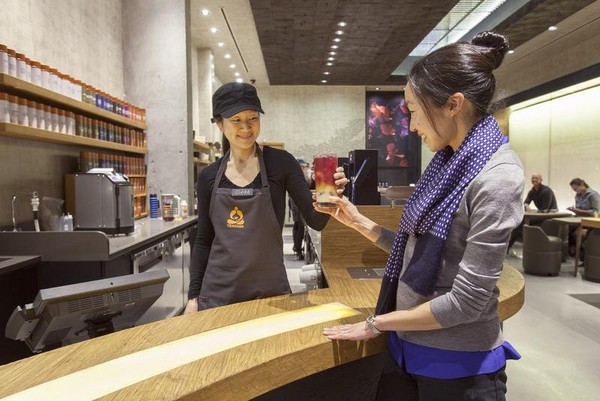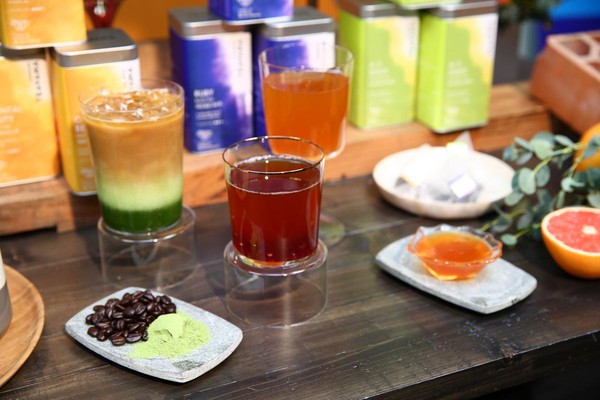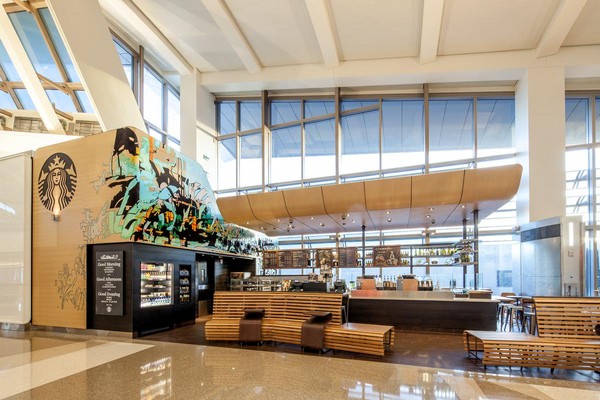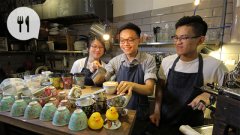Why is Starbucks so popular? Sell not only coffee, but also tea and wine

For professional baristas, please follow the coffee workshop (Wechat official account cafe_style)
Emphasizing experience economy and diversified innovation has always been the most important development strategy of Starbucks. In addition to selling coffee, Starbucks tries to sell tea and wine, which is the embodiment of this distinct trait.
Starbucks actually sells tea as well as coffee, but the development of Teavana's tea business has not been as good as coffee.

Why is Starbucks so popular? Joseph, a professor at Massachusetts Institute of Technology. B. Joseph Pine II's answer is: "it successfully combines four different experiences."
Pine believes that Starbucks creates experiences that make consumers feel special through four kinds of experiences: entertainment, education, escapism and aesthetics, and finally consumers are willing to pay more value. In fact, the vision that inspired Starbucks chairman Schutz to develop a coffee chain was his first business trip to Milan, Italy, in 1983.
At that time, when Schuz walked into a coffee bar in Milan and drank his first cup of Italian milk coffee, he felt a relaxed atmosphere and found that the cafe really attracted customers to come again and again. it is precisely because it provides a relaxed atmosphere, social space and mood transformation. "there was no such thing in the United States at that time, and I had a hunch that I would make a big difference." Schultz later brought this atmosphere and spirit back to the United States to build the Starbucks it is today.
In addition, Starbucks has always adopted a diversified and innovative business strategy, not willing to be a coffee shop quietly. It not only sells coffee, but also tries to sell tea and wine.
In July 2009, Starbucks first announced that it would start selling wine around Seattle and named it "Starbucks Night" (Starbucks Evenings) in order to reverse the company's poor performance. That is, wine, beer and snacks such as olives, nuts and cheese are provided to customers after 4 p.m.
Starbucks is not willing to be a coffee shop quietly. It not only sells coffee, but also tries to sell tea and wine. (photo: reprinted from Starbucks website)
Then, in 2014, Starbucks promoted Starbucks across the United States and expanded the number of Starbucks stores selling alcohol to 439, and plans to promote the program globally from 2015, hoping to increase its brand influence and quickly transcend its usual coffee image.
Starbucks in Taiwan also began selling alcohol in January, and Longmen City in Taipei began to offer alcoholic drinks, including exclusive coffee, beer and red, white wine and champagne, after 4 p.m.
However, it is worth noting that Starbucks' innovation economics has been calling for cards frequently recently. Just as Taipei stores began selling alcohol, Starbucks announced in January that it would stop selling beer and wine in 439 US stores and keep alcohol sales in only nine overseas stores.

In addition, in October 2013, Starbucks bought Teavana for $620 million, hoping to expand the by-product line of tea stores, saying at the time that it would open at least 1, 000 stores in five to 10 years. However, Starbucks announced on July 27th that it would close 379 Teavana stores in one fell swoop, meaning withdrawing from the tea shop brand and focusing on the exhibition store plan of the Chinese coffee shop.
This is also the second major overhaul of Starbucks's business this year. In February, Starbucks announced that it had closed its five-year-old cold-pressed juice store, also closing all its branches, but there will still be cold-pressed juice supply in Starbucks stores.
Important Notice :
前街咖啡 FrontStreet Coffee has moved to new addredd:
FrontStreet Coffee Address: 315,Donghua East Road,GuangZhou
Tel:020 38364473
- Prev

Can Starbucks open a shop in Italy next year after waiting for 35 years to invade the hometown of coffee?
Howard Schultz, former chairman of ▲ Starbucks. For the exchange of professional baristas, please follow the coffee workshop (Wechat official account cafe_style) distributed in 75 cities.
- Next

[27-year-old Romance] Blue and White porcelain sigh at the "halfway Coffee" shop is unhappy. Please eat dried pineapple.
For the exchange of professional baristas, please follow the coffee workshop (Wechat official account cafe_style) a longevity cup on this side, a pile of cups used in childhood teahouses over there, as well as the Phnom Penh cup painted with Pan Jinlian, all the tea sets of the seventies and eighties, suddenly appeared in the middle of the Shanghuan coffee. Nearly four months after its opening, many local and foreign guests have come here, and there is no lack of guests on the online social platform.
Related
- What documents do you need to go through to open a coffee shop? coffee shop coffee shop certificate processing process
- How to purchase Coffee beans in small Cafe how to choose a suitable supplier for domestic Coffee supply Company
- How to drink Starbucks Fragrance White Coffee? how to make Australian White Coffee? what Italian coffee beans are recommended?
- The Story of Flora Coffee: the name of Flora Coffee Bean and the implication of the Flowers on Florna Coffee
- How much does a cup of coffee cost? How much is the profit of a cup of coffee? What is the profit of the coffee shop in a year?
- Yunnan small Coffee, known as "fragrant Coffee", introduces the characteristics of Alpine Arabica Coffee producing areas in Yunnan, China
- 2023 latest Starbucks full menu price list how much is a cup of Starbucks coffee what is better to drink the most popular hot and cold drinks recommended
- Starbucks different kinds of Coffee Price list Starbucks menu 2023 Top Ten Best drinks in Starbucks
- Starbucks Spring praise Comprehensive matching Coffee Bean theme Story Packaging implication and taste description
- The cost of a cup of coffee latte American coffee cost price and selling price

